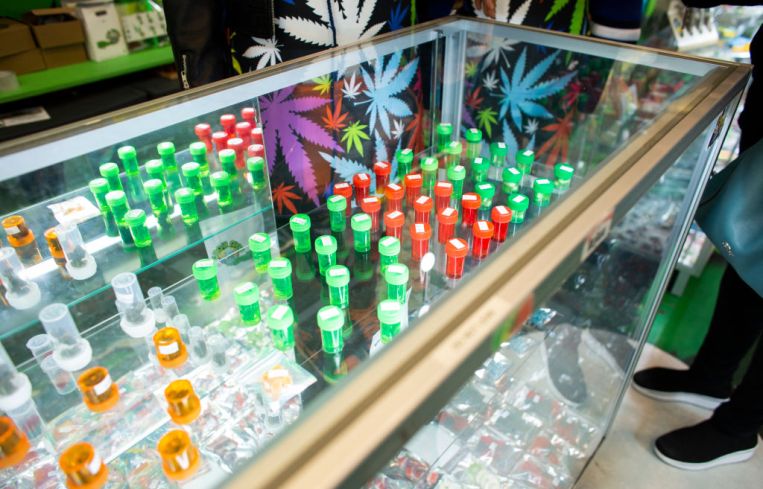NYC’s Legal Weed Market Could Generate Up to $43M in Tax Revenue by 2027: Report
By Rebecca Baird-Remba August 29, 2023 10:56 am
reprints
New York City’s Independent Budget Office estimates that the city could be netting as much as $43 million in taxes per fiscal year from legal weed sales by the middle of 2027 — if the state and the city can help dispensaries open faster.
The IBO modeled potential cannabis sales and tax revenue based on how the early years of legalization played out in states such as California, Colorado, Massachusetts, Washington and Oregon. The agency tried to figure out how long it would take for New York City’s legal weed market to generate $950 million in annual sales, which would bring about $43 million in tax revenue to city coffers.
The Big Apple has seen only nine retail dispensaries open since December 2022, when Housing Works opened the city’s first adult-use cannabis shop on Broadway in Greenwich Village. The dollar volume of monthly sales per dispensary currently open works out to about $8.1 million annually, according to the IBO.
But it could be hard to hit the projected numbers if the pace of new dispensaries opening stays the same. Two months ago, a medical marijuana trade group raised the alarm on New York’s slow rollout of retail dispensaries and lower-than-projected tax revenue from weed sales, declaring the market “an unmitigated disaster.” There is also a temporary restraining order from a state Supreme Court judge that prevents new licenses from being issued and new dispensaries from opening.
“The outcome of the litigation and its effects on cannabis market and revenue growth in New York City remain uncertain,” the IBO noted in a press release accompanying the report.
If dispensaries continue to open at the rate of just one shop per month, the city will not reach $950 million in taxable marijuana sales until October 2032. But if the rate of dispensary openings doubles — to 24 legal weed shops per year — the city could reach $950 million in sales by the second quarter of 2027, the IBO found. Both scenarios assume that each dispensary continues to do $8.1 million in sales per year.
In a third scenario, the IBO modeled 24 dispensary openings per year but assumed that each store would do less business as the number of legal dispensaries grew. If each dispensary does only $6 million in annual sales, then the city would not hit $950 million in taxable sales until January 2029.
Meanwhile, it took California, Colorado, Massachusetts and Oregon five years since legalizing marijuana to hit a similar sales target on a per capita basis, according to the IBO.
All told, New York has awarded 241 retail licenses for dispensaries in the five boroughs, accounting for 52 percent of licenses awarded statewide.
Then there are the illegal weed shops — roughly 1,500 of them citywide, according to data from the New York City Sheriff’s office. Some estimates put the number of illegal weed stores at 8,000, but the IBO wasn’t able to confirm that. Based on what the sheriffs have seized from illicit dispensaries so far, IBO analysts posited that up to $484 million worth of cannabis products may be sitting in unlicensed smoke shops. If all of those products were sold legally, they would generate $19 million in revenue for the city.
Back in February, the Manhattan District Attorney’s office threatened to force landlords to evict 400 illegal weed stores. Then Gov. Kathy Hochul signed a law in May that allowed the city to fine illicit smoke shops up to $20,000 per day, leading to hefty fines for a few stores. Finally, the New York City Council just passed a law that allows city and state law enforcement to fine landlords up to $10,000 per violation for renting to an unlicensed cannabis shop.
The New York City Economic Development Corporation and Small Business Services also plan to fund about $21 million in loans for cannabis businesses through 2027, largely through a fund subsidized by private lenders.
Rebecca Baird-Remba can be reached at rbairdremba@commercialobserver.com.



